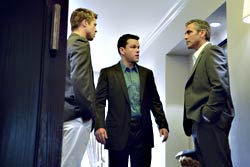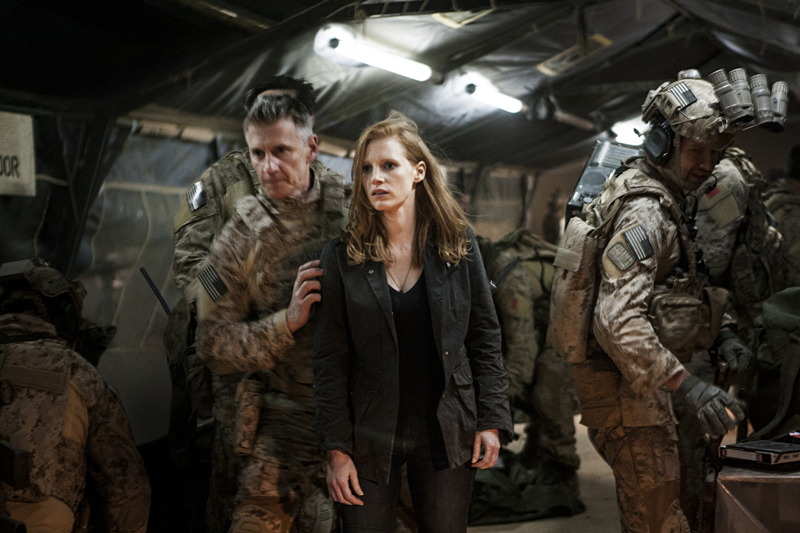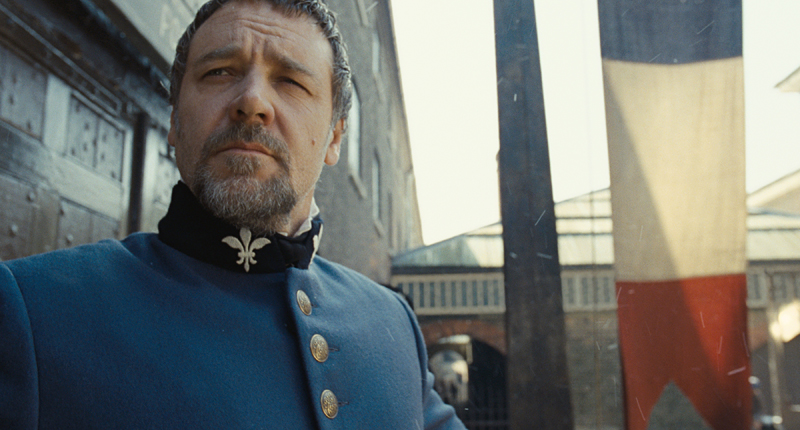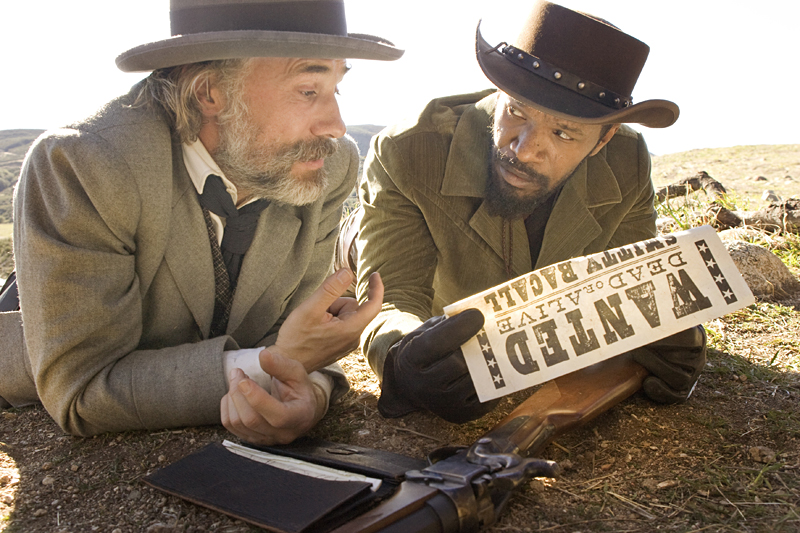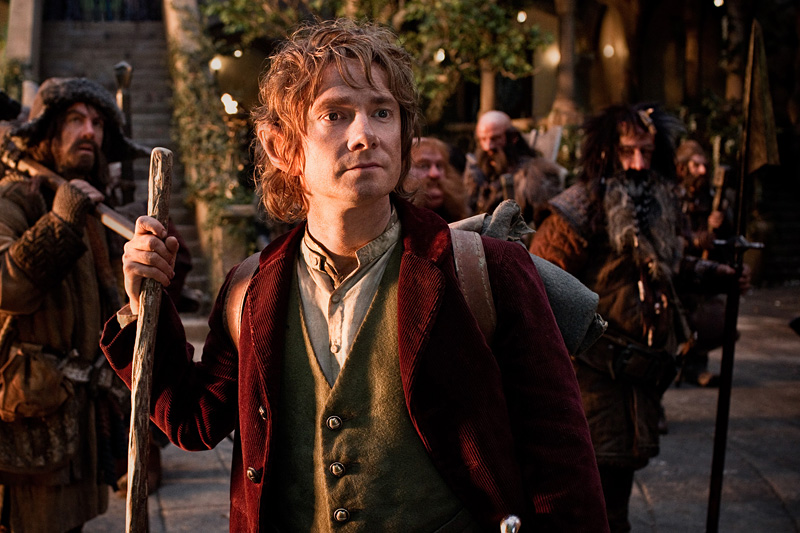Blame it on the scarcity of natural light, or maybe the widespread absence of clocks, but Steven Soderbergh seems to have overstayed his Sin City welcome. His series of Ocean’s movies, which began as a breezy kiss-off to Hollywood’s self-aggrandizing tentpole blockbusters, had already, by Ocean’s Twelve, begun to feel a little too cool for the room. Now, Soderbergh has made a movie so cool it’s practically comatose.
Sputtering along from one half-cocked gag line and self-satisfied in-joke to the next, Ocean’s Thirteen is as slapdash and slipshod a three-quel as any of the others in this summer’s box-office sweepstakes. It’s as if, like Sinatra in the days when he was playing short sets and forgetting lyrics, Soderbergh and company thought they just had to show up and we’d be entertained.
From the beginning, the Ocean’s movies have been as ephemeral as one of George Clooney’s shit-eating grins, and you’d be crazy to buy a ticket expecting to see a work of any great substance. But Ocean’s Eleven had real verve and snap, and a puckish fun that came from watching Soderbergh and his A-list pals play hooky in the neon jungle for a fraction of their usual salaries. Then something unexpected happened: The movie turned into a monster international hit. Soon, a sequel was in demand, and by the time it arrived, what had started out as an off-the-cuff alternative to bloated Hollywood franchise movies had gone from parody to paradigm.
In Ocean’s Thirteen, there is a plot, so to speak, though it would take a good deal longer to relate than I suspect it took the screenwriting team of Brian Koppelman and David Levien (Rounders) to come up with. The gist is that an unscrupulous casino baron oh-so-cleverly named Willy Bank (Al Pacino, dyed George Hamilton orange) has screwed Ocean-gang father figure Reuben (Elliott Gould) out of his share of a joint hotel venture, the stress from which has landed Reuben in the ER with a coronary. So Danny (Clooney) and Rusty (Brad Pitt) and Linus (Matt Damon) and Dorothy, and Toto and all the rest drop what they’re doing and rush to Reuben’s bedside, where an elaborate, “seemingly impossible” revenge scheme is hatched.
The plan is to make off with a few hundred million of Bank’s loot not by stealing it but by winning it, from his own casino tables—after, of course, they’ve been systematically rigged to pay out over and over and over again.
In the event that you maintain some uncertainty about how this all ends, far be it from me to give up the game. Let’s just say that it’s hard to get too worked up about a heist in which every last piece snaps into place with the ease of a child’s jigsaw puzzle. Need to rig a craps table with some radio-controlled dice? Send those intrepid Malloy brothers (Scott Caan and Casey Affleck) undercover in the Mexican sweatshop where the dice are manufactured! Need some last-minute cash to bankroll your scheme? Just turn to your longtime arch-nemesis (Andy Garcia), who’ll be only too happy to oblige! Need a conveniently timed, Irwin Allen–style earthquake to wreak havoc with Bank’s ultra-high-tech security system? Well, you get the idea.
In Ocean’s Thirteen, Danny Ocean has developed such an outsize ability to make happen whatever he wants to happen that the movie could be considered Soderbergh’s first foray into the superhero genre. After a while, I actually began to feel sympathetic for old money-grubbing Bank. With odds like these, he doesn’t stand a fighting chance.
I realize, of course, that none of these things are supposed to matter, that any movie called Ocean’s followed by some double-digit numeral is meant to be such a rollicking good ride that you won’t have time to think about what does or doesn’t hold water. But in Ocean’s Thirteen, the insouciant charm wears off early, and what seemed carefree about the earlier films comes to seem careless, from the lazy plotting to Soderbergh’s I-can-put-the-camera-wherever-the-fuck-I-want-and-shoot-everything-on-a-zoom-lens direction.
This time, the con is on the audience.
